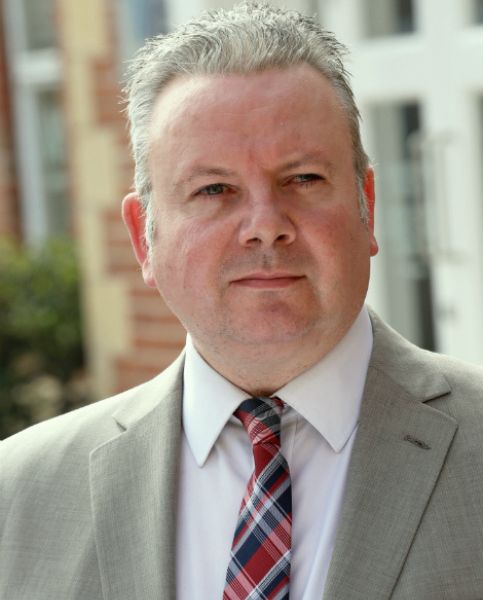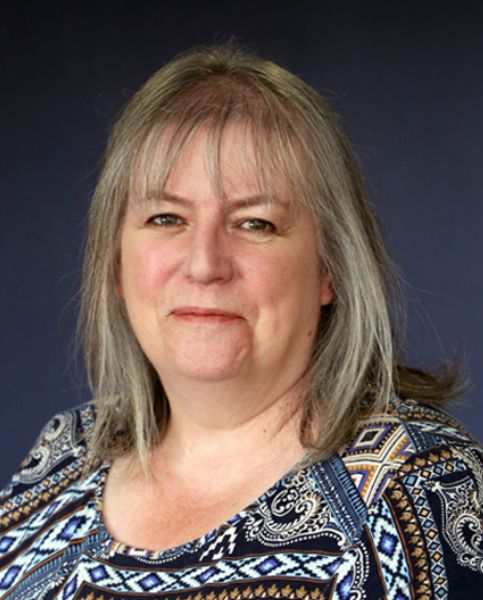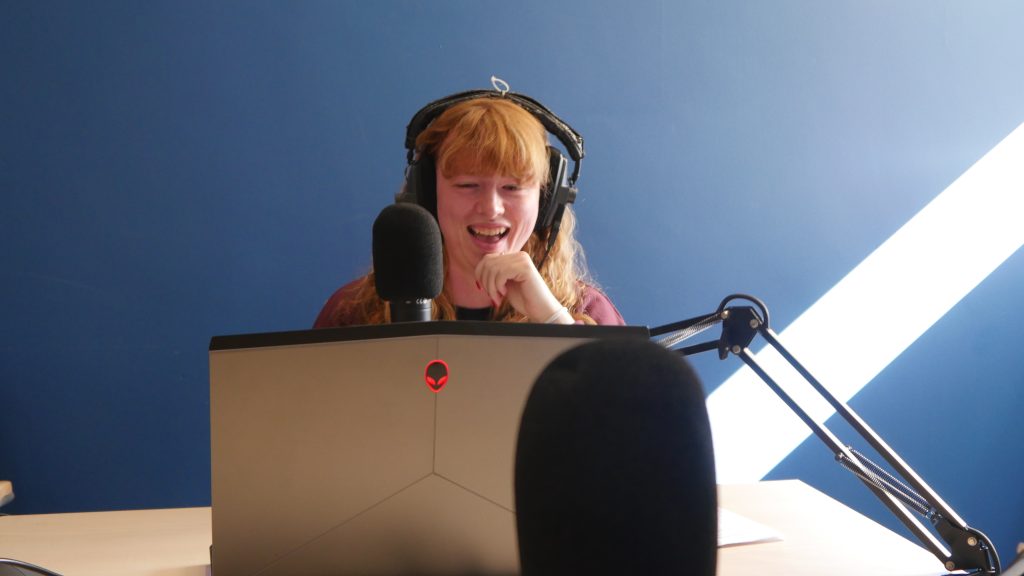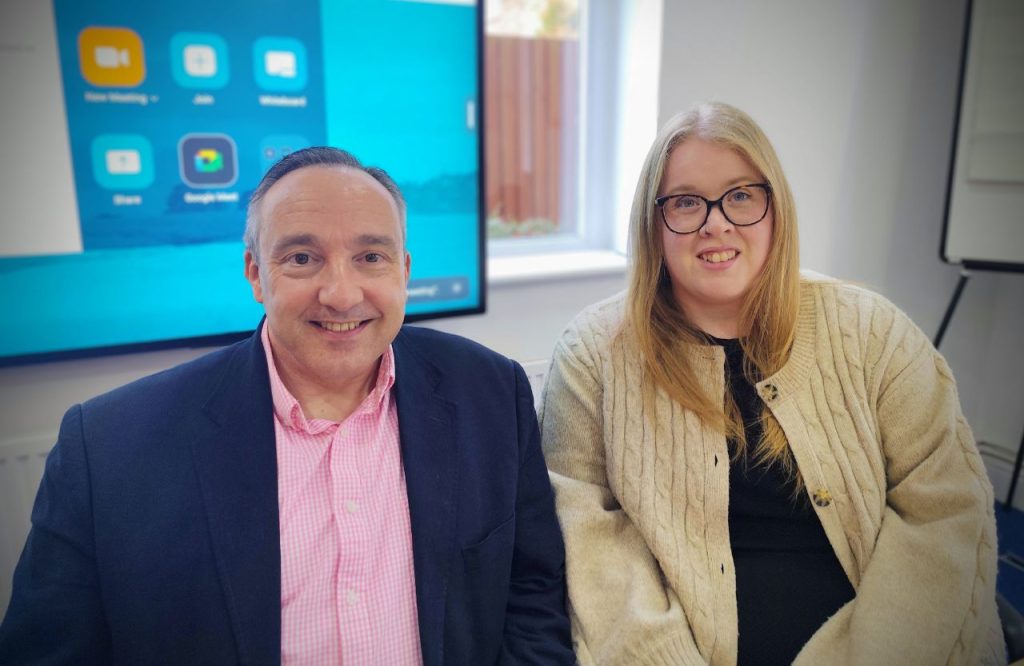Our Court of Protection Solicitors support vulnerable people and their loved ones expertly and compassionately.
Court of Protection Solicitors.
Our Court of Protection Solicitors provide specialist advice and support to those who need help protecting the best interests of a vulnerable relative or friend.
The Court of Protection plays a crucial role in safeguarding the interests of individuals who lack the mental capacity to make decisions about their personal welfare, financial affairs, or healthcare. At Lanyon Bowdler, we understand how sensitive and challenging these situations can be for families and carers, and our dedicated team of Court of Protection solicitors provide compassionate, clear, and expert guidance.
The Court of Protection can make decisions, and can appoint other people to make decisions, for those who lack the mental capacity to do it themselves. Principally these matters involve health, financial affairs, property and personal welfare.
We provide a comprehensive and compassionate service for Court of Protection matters in England & Wales. Contact our specialists today, for an initial consultation where we will listen to your situation with care and understanding.
Our specialist Court of Protection Solicitors are able to advise and represent our clients through all matters that may come before the Court of Protection, ensuring the best care and financial provisions are made for individuals who require such protection.
We pride ourselves on being one of the very few firms in Shropshire, Herefordshire and Mid-Wales, qualified to work on Court of Protection cases for people with degenerative conditions, such as Alzheimer’s Disease or Dementia, and those with acquired brain injuries or traumatic brain injuries.
Key Contact
Neil Davies is a specialist Court of Protection Solicitor. He is a partner and Head of our Court of Protection Department.
He acts as professional deputy for clients with acquired brain injuries. He specialises in contentious financial and welfare applications to the court.
Neil is a member of the Court of Protection Practitioners’ Association, the Professional Deputies Forum and the STEP Mental Capacity Special Interest Group and is a Full Accredited Member of the Association of Lifetime Lawyers, one of the most qualified lawyers in the country supporting older and vulnerable people.
What is the Court of Protection?
The Court of Protection is a court which can make decisions and appoint other people to make decisions for those who lack the mental capacity to do it themselves.
Principally these decisions involve health, financial affairs, property and personal welfare, and deputies will often be family members. The Court of Protection can decide whether a person lacks capacity to make a decision on important topics, or make what is known as a “best interest decision” for them. If someone wants to be appointed by the Court of Protection as a decision maker for someone else, known as a deputy, they must make a deputy application to the court.
Our Court of Protection Expertise
If you are worried that the legal process for appointing legal authority is not working properly, or if there is a disagreement about who should have legal authority over an individual, our experienced Court of Protection Solicitors can help.
To find out more please download our brochure.
Mental Capacity: A Person‘s Ability to Make Their Own Decisions
Listen here to Neil Davies and Lucy Speed give an insight into the Court of Protection. You’ll hear a segment about the history of the court, and the use of archaic terms that lasted centuries. They also talk about the Britney Spears case and how this would have been dealt with differently in the UK.
Why it Pays to take Proper Legal Advice
In this episode, you’ll hear solicitors Edward Rees and Neil Davies discuss the importance of good legal advice in relation to The Court of Protection, lasting powers of attorney, wills, and estate administration.
The Court of Protection Team is recognised in Tier Four of the 2026 edition of Legal 500, the edition states: “Lanyon Bowdler fields a ‘very responsive’ team in the West Midlands, which continues to attract complex work from across the UK on a range of contentious property and welfare cases.”
A past edition of Chambers UK High Net Worth Directory describes Lanyon Bowdler as a “very well-established, well-known Shropshire firm,” says a market insider, adding that this “full-service firm is recognised in Shrewsbury in many practice areas. “The private client team advises clients on wills, trusts and the administration of estates, and is considered to be “very strong on Court of Protection work.”
How can Lanyon Bowdler help?
Our Court of Protection department at Lanyon Bowdler is renowned for its expertise and knowledge of the law surrounding these cases. We have helped many clients in both the application and management of deputyships, including cases such as:
- Applications for Court of Protection Deputyship
- Management of gifts in Court of Protection cases
- Professional Deputyships
- Preparation of Statutory Wills
- Financial Abuse of Vulnerable People
- International Protection of Adults
- Property Adaptations for persons lacking capacity
- Support for Solicitors in Court of Protection
However complex your case is, and whatever role you have, our expert team of Court of Protection Solicitors can help you reach the best possible outcome.
What services do Lanyon Bowdler’s Court of Protection solicitors offer?
Our dedicated team can assist with a wide range of Court of Protection matters, including:
- Lay deputy applications: If you wish to act on behalf of a loved one as their deputy, we can assist with the application process and provide ongoing legal support.
- Acting as professional deputy: In cases where a professional is required to manage complex financial or welfare matters, our solicitors can act as professional deputies to ensure your loved one’s best interests are safeguarded.
- Health and welfare matters: We provide legal representation in cases involving disputes over care arrangements, residence, medical treatment, and contact with others.
- Statutory Will applications: When a person lacks the capacity to make a Will, we can assist with applying to the Court of Protection for a Statutory Will to ensure their estate is managed in line with their best interests.
- Gift applications: If you need to make gifts or financial provisions on behalf of someone who lacks capacity, we can help with the application process to ensure compliance with legal requirements.
- Contested deputyship applications: If you have concerns about the actions of a current deputy or attorney, we can assist with applications to challenge or remove them where necessary.
- Personal Injury Trusts: We can help set up trusts to protect compensation awarded for personal injury claims, ensuring funds are managed appropriately and do not affect entitlement to means-tested benefits.
- Deprivation of Liberty Safeguards (DoLS): If you believe a loved one is being unlawfully deprived of their liberty in a care setting, we can help you challenge the restrictions imposed.
- Emergency applications: If urgent decisions need to be made, such as medical treatment or financial transactions, we can assist in making emergency applications to the Court of Protection.
What decisions can the Court of Protection make?
The first thing the Court of Protection does is decide whether a person is mentally capable or not of making a certain decision. If the person does not have the capacity, the court will either make a one-off order or, if there are likely to be continuing decisions that need to be made not, it will appoint deputies to make decisions for the person in question.
Other decisions that the court makes include:
- The execution of a will on behalf of someone without the mental capacity to make one themselves
- The validity of a lasting power of attorney (LPA) or enduring power of attorney (EPA), and objections to proposed EPAs or LPAs.
- Whether attorneys or deputies should be able to make financial gifts on behalf of the person lacking capacity
- Removal of the legal rights for deputies or attorneys to make decisions entirely if it believes they have failed to carry out their duties properly.
The team of specialist Court of Protection Solicitors, here at Lanyon Bowdler have a great deal of experience in the process, and understand that the issues can be highly sensitive. Our team is qualified to undertake professional deputyship in respect of Court of Protection representation and administration.
Our supportive and personal approach has been highlighted by clients as a valuable part of our work, helping you to make the important decisions and getting the case to a satisfactory conclusion as quickly as possible.
Your Court of Protection questions answered
If a loved one is unable to make decisions due to conditions such as dementia, a learning disability, or a brain injury, and they have not put in place a Lasting Power of Attorney, an application to the Court of Protection may be necessary. This ensures that important decisions about their finances, healthcare, and day-to-day living arrangements can be made in their best interests.
Mental capacity refers to a person’s ability to understand and make decisions. If your loved one struggles to process information, weigh up decisions, or communicate their wishes due to a medical condition, they may lack capacity. A formal assessment, often carried out by a medical professional, can determine whether legal intervention is required.
Having legal authority means that you are allowed to make either welfare decisions or financial decisions on another person’s behalf. If legal authority is given to you by the court of protection, your legal responsibility will continue after the person who has been made a deputy dies.
A local council or NHS trust may be able to apply for legal authority over an individual if there is evidence that this would help them protect their interests or meet their needs better than anybody else could do so.
Lacking mental capacity means that a person doesn’t have the legal capacity to make decisions for themselves. This could be because they are unwell, or it may mean that their condition is permanent and long-term, such as people with severe learning disabilities or mental health conditions.
People who have suffered brain damage due to personal injury or through medical negligence may also lack mental capacity. Sometimes, people are able to make decisions for themselves about certain things, but not others. This is called ‘partial capacity’.
The Mental Capacity Act 2005 is a key piece of legislation that provides a legal framework for supporting individuals who lack the capacity to make their own decisions. It covers matters relating to the Court of Protection, deputyship, and Lasting Powers of Attorney, and establishes clear principles to ensure that individuals are empowered to make decisions wherever possible. The Act also includes a Code of Practice, which offers guidance to professionals and caregivers when making decisions on behalf of others.
A deputy is someone appointed by the Court of Protection to make decisions on behalf of a person who lacks capacity. Deputies can be responsible for financial matters, such as managing bank accounts and paying bills, or for health and welfare decisions. To become a deputy, an application must be made to the court, and the process involves providing detailed information about the individual’s circumstances and needs. Our solicitors can guide you through this process, ensuring everything is handled correctly.
A deputy must keep accurate financial records, making decisions that align with their preferences and values, and reporting to the Office of the Public Guardian (OPG) annually. Our team can provide practical advice on fulfilling your responsibilities effectively.
A Lasting Power of Attorney (LPA) is a legal document that allows someone to appoint a trusted person to make decisions on their behalf if they lose capacity in the future. This must be arranged while the individual still has capacity. If no LPA is in place and the person loses capacity, a deputyship through the Court of Protection will be required.
Deputies are supervised by the Office of the Public Guardian, which ensures they act in accordance with their legal duties. Deputies must submit an annual report detailing their financial decisions and any significant actions taken. If concerns arise about a deputy’s conduct, the OPG has the power to investigate and take further action if necessary.
The Office of the Public Guardian (OPG) oversees the work of deputies and attorneys under Lasting Powers of Attorney. They provide guidance, investigate concerns, and ensure vulnerable individuals are protected from financial abuse or mismanagement.
It is not uncommon for families to have differing opinions about a loved one’s ability to make decisions, and these disputes can be difficult to resolve. The Court of Protection can step in to assess the situation and determine what is in the person’s best interests. Our solicitors can support you in presenting your case and ensure that your concerns are heard.
Yes, the Court of Protection plays a crucial role in safeguarding vulnerable individuals from financial abuse or exploitation. If you suspect that someone lacking capacity is being taken advantage of, our solicitors can help you take the necessary legal steps to protect their assets and ensure their affairs are managed responsibly.
Yes, in some cases, the court may need to intervene if there is disagreement about medical treatment or if the person lacking capacity has complex healthcare needs. Our solicitors can help you apply to the court for decisions regarding treatment options, end-of-life care, and other important health-related matters.
If you believe a decision made by the Court of Protection is not in the best interests of your loved one, you may have the right to challenge it. Our legal team can advise you on the grounds for appeal and guide you through the necessary steps to seek a reconsideration.
If you believe a deputy is mismanaging a vulnerable person’s affairs, we can provide expert legal advice. Mediation is often the first step to resolving disputes, but if concerns persist, we can assist with applications to the Court of Protection to challenge or remove the deputy where necessary.
What our clients say.
Talk to our Team
Our Court of Protection Lawyers manage approximately 60 deputyships and trusts with assets of approximately £100 million, putting it on a par with other nationally recognised Court of Protection practices.
We would be happy to advise you on every aspect of the Court of Protection process and the Mental Capacity Act 2005.
Please give our Court of Protection team a call for a friendly, confidential, conversation about how we can help support you. Initial conversations to discuss your situation are, of course, completely free of charge, with no obligation attached.
By choosing Lanyon Bowdler, you can rest assured that you have the best legal expertise on your team.
We have offices in Shrewsbury, Bromyard, Conwy, Hereford, Ludlow, Oswestry, and Telford, so are able to act for clients throughout Shropshire, Herefordshire, Mid and North Wales. Our specialists regularly act on behalf of families and vulnerable people across the Midlands. Our expertise makes us one of the leading firms of Court of Protection Solicitors in Birmingham, Wolverhampton, and Worcester
Get in touch. We listen and we care. Call or team or complete our online enquiry form and we will get back to you. We can also arrange a home visit if more convenient.
Meet the team.
Case studies.
Latest knowledge.
Our awards and accolades.
Get in touch.
"*" indicates required fields

 Back
Back




 Click to download
Click to download 











 Case Study
Case Study


 Podcast
Podcast


 Blog
Blog












